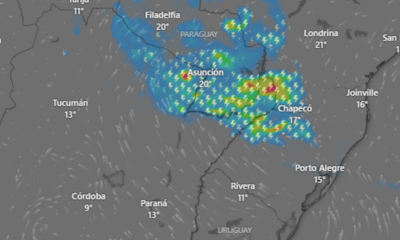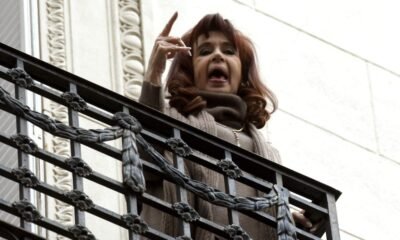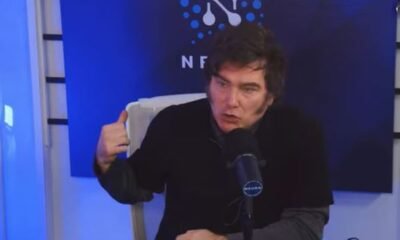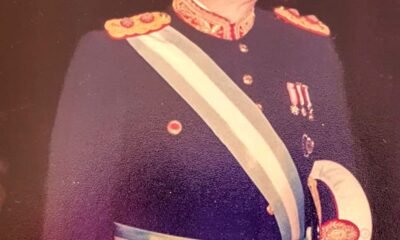INTERNACIONAL
Leading Canadian conservative says Ottawa should remove all tariffs as ‘Liberation Day’ arrives
OTTAWA – As Canadians brace themselves for President Donald Trump’s «Liberation Day» of reciprocal tariffs on Wednesday, one political leader in Canada believes it could spark the start of a new era of Canada-U.S. relations free of cross-border taxes.
Maxime Bernier, who served as foreign affairs minister in former Prime Minister Stephen Harper’s Conservative government and now heads the right-wing People’s Party of Canada (PPC), told Fox News Digital in an interview from Halifax that it is «absolutely» the time for Canada to remove all tariffs against the U.S.
He said the 25% duties the Canadian government, under then-Liberal Prime Minister Justin Trudeau, imposed on the U.S. in early February to counter Trump’s 25% tariffs against Canada «won’t hurt the Americans – it is hurting Canadians.»
New Canadian Prime Minister Mark Carney said in a statement following his March 28 call with the president – the first contact between both leaders since Carney was elected Liberal leader by his party nearly three weeks before – that Canada would implement retaliatory tariffs in response to Wednesday’s U.S. «trade actions.»
TRUMP’S 11TH WEEK IN OFFICE SET TO FOCUS ON TARIFFS AS PRESIDENT TOUTS ‘LIBERATION DAY’
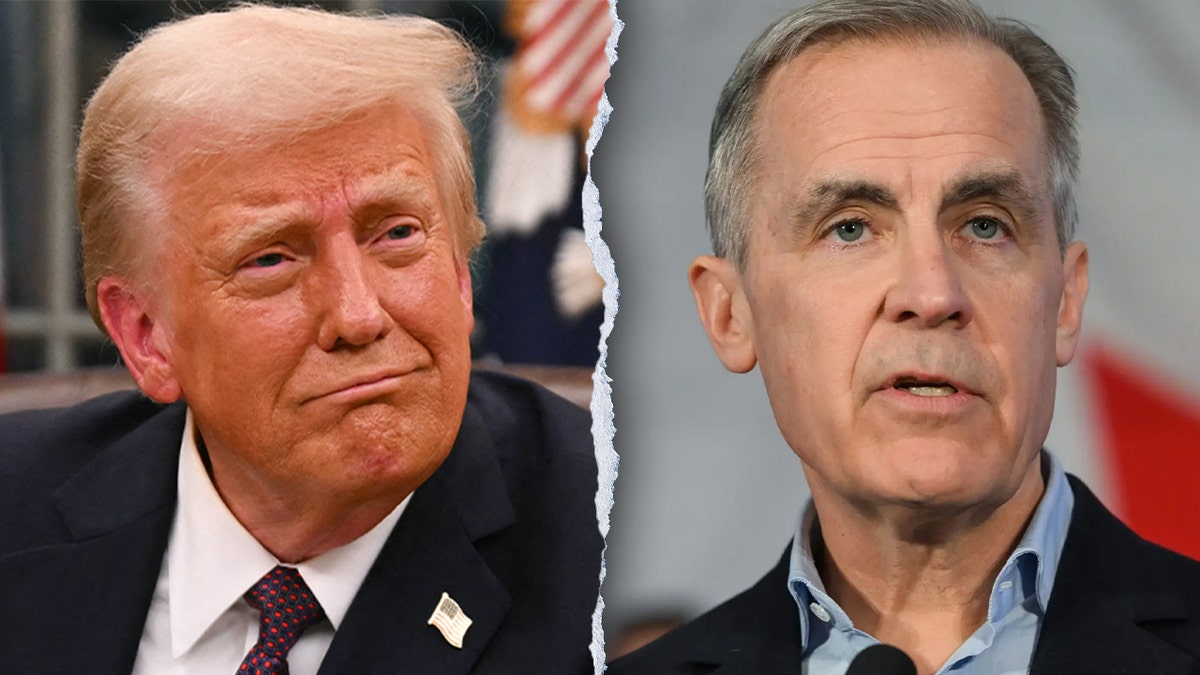
President Donald Trump, left, and Canadian Prime Minister Mark Carney. (Getty Images)
The PPC leader said that Trump should be told that «the real reciprocal response» to tariffs is «zero on our side, zero on your side.»
Bernier said that instead, Carney and his main rival, Conservative Party Leader Pierre Poilievre, are being «fake patriots using a dollar-for-dollar trade war against Trump» and telling Canadians: «That’s the best thing to do.»
«We cannot impose counter-tariffs,» said Bernier, who also served as industry minister in the Harper government.
«The Americans are 10 times bigger than us. We won’t win a trade war,» he said, underscoring that retaliation will lead to a recession in Canada.
Former Canadian Conservative politician Tony Clement, who served alongside Bernier in Harper’s Cabinet, told Fox News Digital that «from an economic point of view,» removing Canadian tariffs «makes a lot of sense» and «may come to that at some point, but the public isn’t there right now.»
«From a point of view of the emotional wounds of Canadians created by Trump and his annexation talk and tariffs, I’m not sure that a political voice would survive if it went down that public-policy route,» said Clement, a former Canadian industry minister in the Harper government.
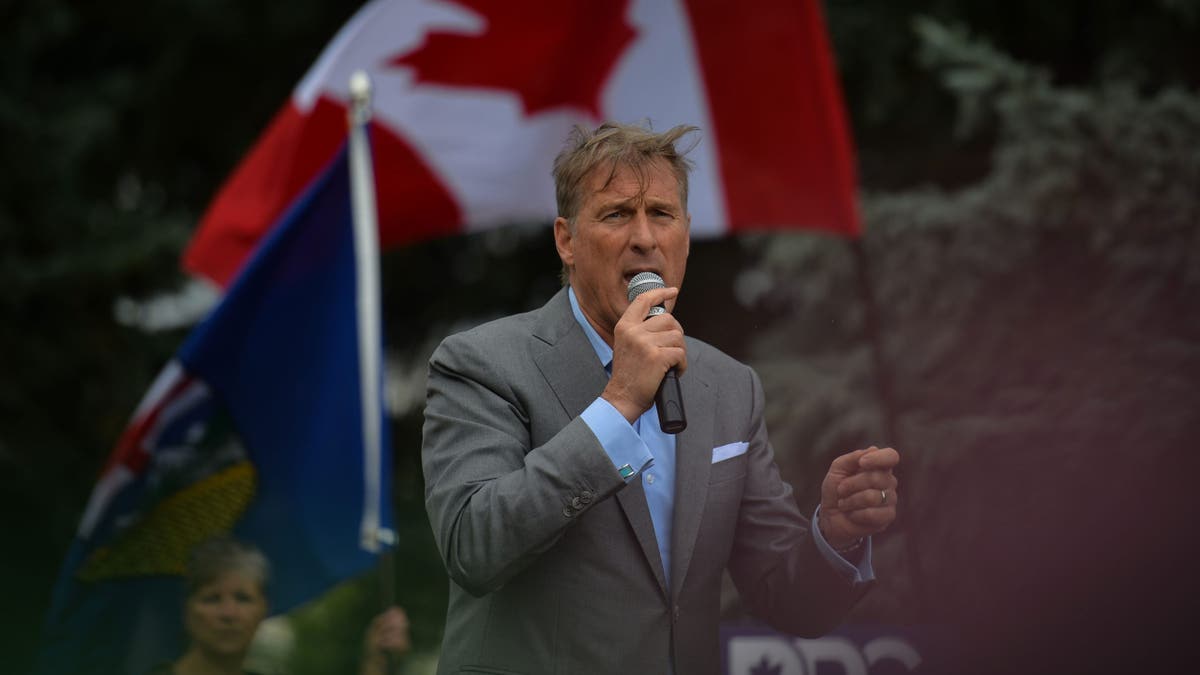
Maxime Bernier, leader of the People’s Party of Canada, meets with his supporters at an election rally in Borden Park on Saturday, Sept. 11, 2021 in Edmonton, Alberta, Canada. (Artur Widak/NurPhoto via Getty Images)
«The mood of the people is outrage. I’ve never seen people in Canada this incandescently mad at the United States,» he said, who is campaigning in the Toronto area for Poilievre’s Conservative Party ahead of the April 28 general election. «There is complete distrust of whatever Trump says because it can change within 24 hours.»
He said that both Poilievre and Carney have highlighted the importance of removing «the specter of tariffs for a long period of time – if you can trust Trump to be a bona fide negotiator.»
Eliminating Canadian tariffs, without a quid pro quo from Trump, could «show weakness to a bully,» added Clement, who, prior to entering federal politics in 2006, served as a Cabinet minister in former Ontario Premier Mike Harris’ Progressive Conservative government.
MARK CARNEY WINS LIBERAL PARTY NOMINATION TO REPLACE TRUDEAU AS CANADA’S NEXT PM
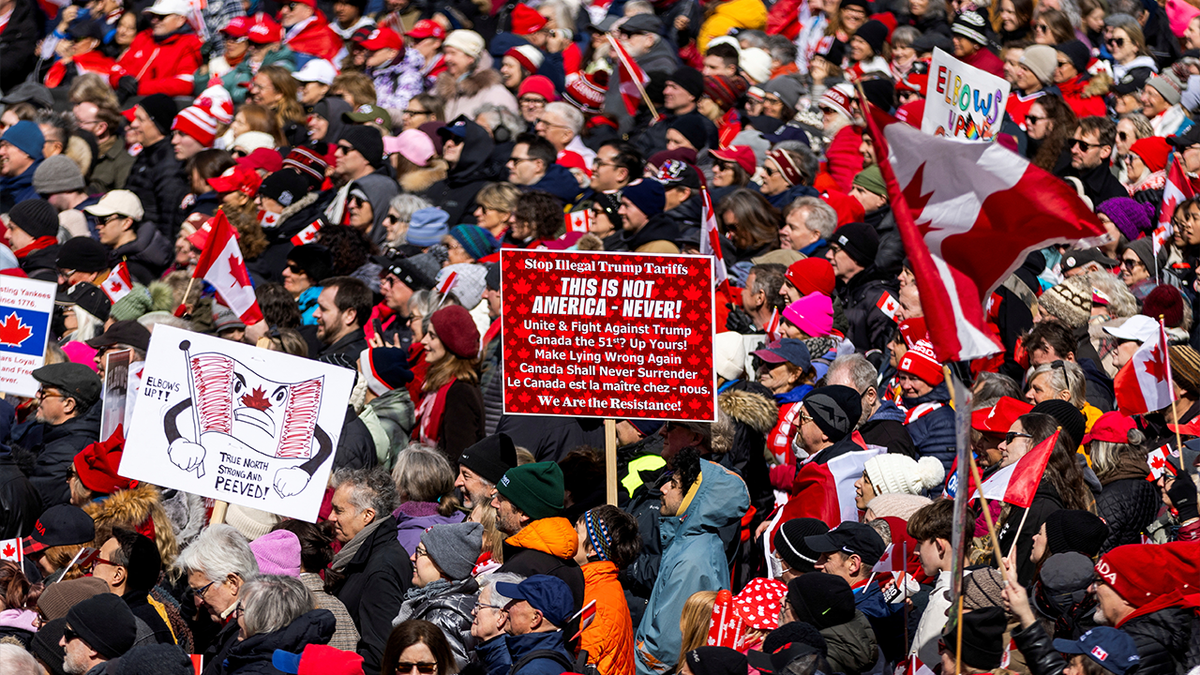
Canadians hold an «Elbows Up» protest against U.S. tariffs and other policies by U.S. President Donald Trump, at Nathan Phillips Square in Toronto on March 22, 2025. (REUTERS/Carlos Osorio)
In the statement released following his recent conversation with Trump, Carney said that both leaders «agreed to begin comprehensive negotiations about a new economic and security relationship immediately following the election.»
Conservative strategist Yaroslav Baran, who served as communications chief for Harper’s successful Conservative 2004 leadership campaign, and director of war room communications for the Harper-led Tories during the 2004, 2006 and 2008 federal election campaigns, told Fox News Digital that under the United States-Mexico-Canada Agreement (USMCA), «trade in goods and services ought to be tariff-free» between Canada and the U.S., excluding carveouts on the Canadian side for dairy, eggs, poultry and softwood lumber.
However, Baran added that he «can’t see the removal of all Canadian tariffs on U.S. products as long as the U.S. has tariffs on Canadian products.»
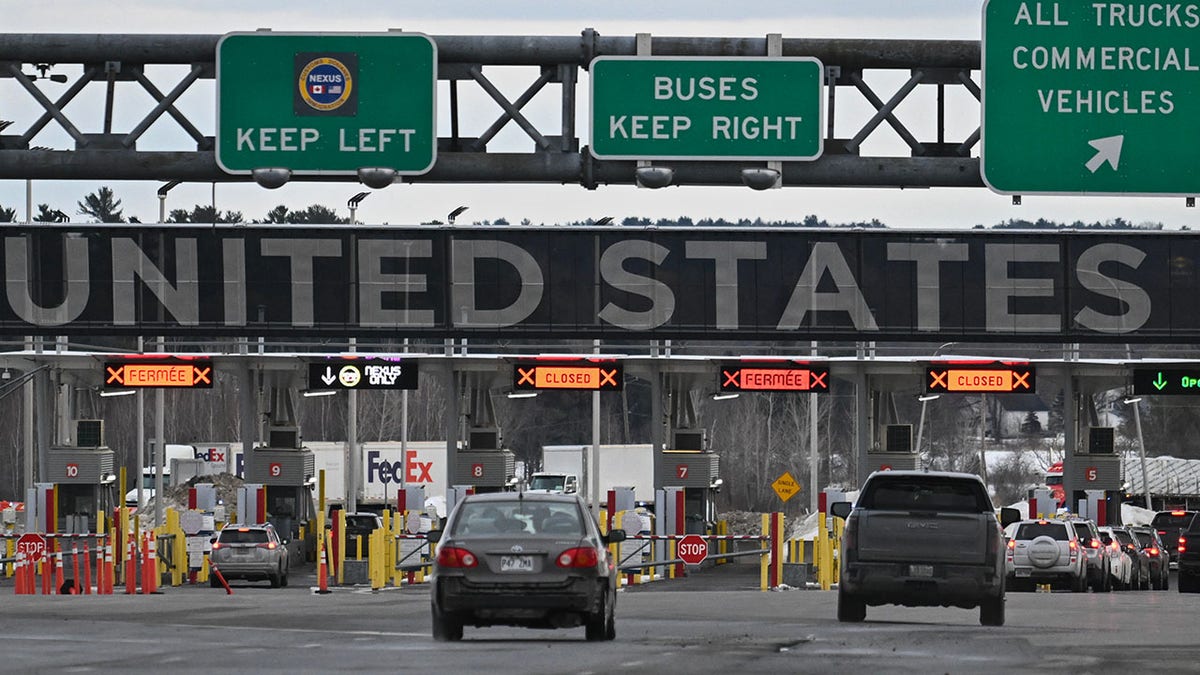
Vehicles in line to cross into the United States at the Canada-U.S. border in St-Bernard-de-Lacolle, Quebec, Canada, on Thursday, March 6, 2025. President Donald Trump exempted Canadian goods covered by the USMCA from his 25% tariffs, offering major reprieves to the U.S.’ two largest trading partners. (Graham Hughes/Bloomberg via Getty Images)
Bernier acknowledged that while Trump’s tariffs will hurt Canadian exporters to the U.S., «the solution is to have a more productive economy with real free-market reforms» in Canada through such measures as lowering corporate taxes, promoting internal trade and fostering growth in the country’s oil and gas industry, all of which are featured in the PPC’s election platform that includes the establishment of a «Department of Government Downsizing» to abolish «ideologically motivated programs that promote wokeism,» not unlike the Elon Musk-led Department of Government Efficiency.
The PPC leader also said that Canada should be willing to «put everything on the table» under the USMCA «right now» and before the trilateral trade deal is scheduled for a joint review next year.
CLICK HERE TO GET THE FOX NEWS APP
According to Bernier, that should include ending the «cartel» of supply management that sets quotas and prices, and protects Canada’s dairy, poultry and eggs sectors from foreign competition, which he described as «a communist system» that finds Canadians paying twice the price of those agricultural products than Americans do in the U.S., and which also imposes duties – ranging from 150% to 300% — on U.S. imports of the same products beyond limits agreed to but yet to be reached under the USMCA.
During the renegotiation of the North American Free Trade Agreement in 2018 that led to the USMCA, the first Trump administration sought to have Canada’s supply management system eliminated.
INTERNACIONAL
Un hallazgo arqueológico en Odesa revela secretos griegos y medievales bajo la Escalera Potemkin
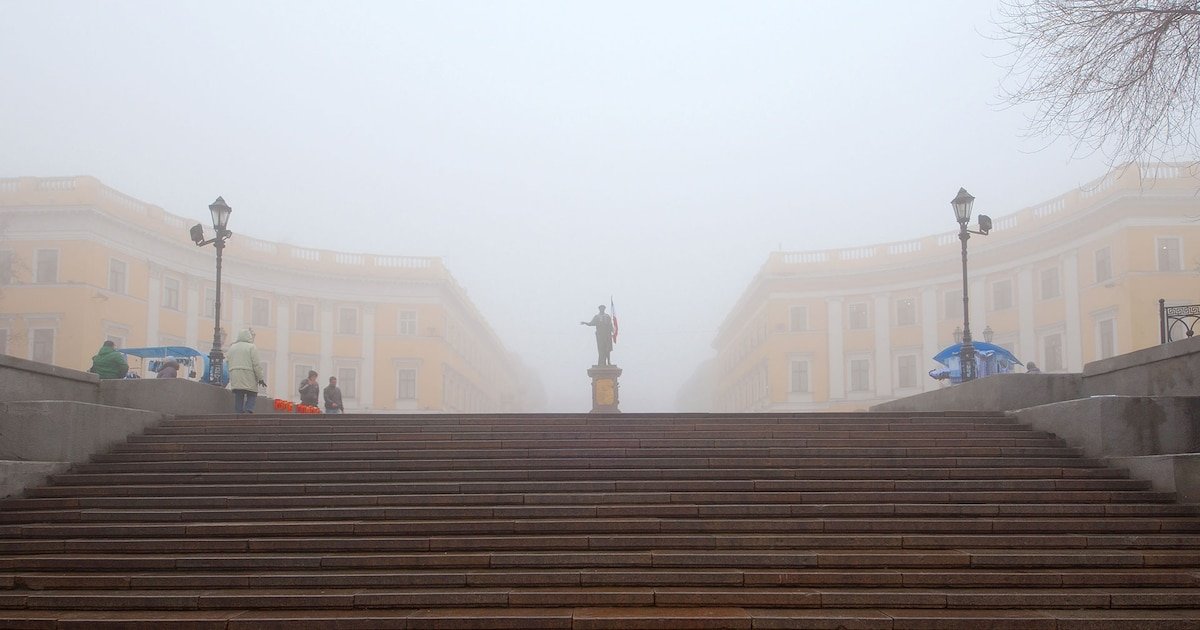
Grosby
La excavación en el centro de Odesa ha revelado que los muros de una antigua batería costera, hallados junto al acantilado original, contenían materiales incrustados del siglo V a. C., lo que sugiere que el puerto ya era un asentamiento griego mucho antes de la llegada de los otomanos y los rusos.
Este hallazgo, que conecta la historia de la ciudad con sus raíces más remotas, se suma a una serie de descubrimientos recientes que, según la información difundida por los equipos arqueológicos, ilustran la compleja y cosmopolita trayectoria de la urbe portuaria del Mar Negro.
Investigadores de la Universidad Pedagógica Nacional del Sur de Ucrania y el Instituto de Arqueología de la Academia de Ciencias confirman que, por un lado, la localización de vestigios de la fortaleza genovesa del siglo XIV, conocida como castillo de Ginestra; por otro, la identificación de los restos del Castillo de Hadzhibey, cuya ubicación exacta había sido motivo de debate durante casi dos siglos.
El primer hallazgo, el del castillo de Ginestra, arroja luz sobre la influencia de la República de Génova en la región. Desde el siglo XI, Génova consolidó su poderío naval y comercial, estableciendo una red de enclaves estratégicos en el Mar Negro, entre ellos la colonia de Gazaria en la actual Crimea, que mantuvo desde el siglo XIII hasta finales del siglo XV. Los restos de la fortaleza genovesa aparecieron en la plaza situada en lo alto de la Escalera Potemkin, un lugar emblemático inmortalizado en el filme El acorazado Potemkin (1925).
Esta zona, además, alberga la estatua de bronce del duque de Richelieu, quien, designado gobernador por el zar Alejandro I a comienzos del siglo XIX, impulsó la transformación de Odesa de una aldea a una ciudad moderna.
El segundo descubrimiento, centrado en el Castillo de Hadzhibey, ha resuelto una incógnita histórica que inquietaba a los arqueólogos locales. Tras la conquista otomana de la región en 1480, la fortaleza fue reconstruida y se convirtió en escenario de disputas entre los imperios ruso y otomano.

En 1789, durante la guerra ruso-turca, las tropas rusas destruyeron el castillo y reutilizaron sus materiales para nuevas construcciones. La falta de restos visibles y de documentación cartográfica o escrita del siglo XIX había dificultado la localización precisa del sitio, lo que alimentó la controversia durante generaciones.
La excavación permitió identificar los muros frontal y lateral de la batería costera que unía el castillo con la línea de costa. Su posición, próxima al antiguo acantilado, ofrecía a sus ocupantes una ventaja estratégica sobre el puerto de Odesa. El yacimiento contenía carpintería desmontada, capiteles de época otomana y escombros del siglo XVIII, todos ellos testigos materiales de la destrucción del castillo.
Los arqueólogos comprobaron que la disposición de los restos coincidía con el último diagrama conocido de la fortaleza, elaborado en la década de 1760. No obstante, el análisis de los materiales reveló que el muro de la batería era anterior a la presencia rusa y otomana, ya que incluía fragmentos del siglo V a. C., lo que remite a la existencia de un asentamiento griego en la zona.
Los intentos más recientes de localizar el Castillo de Hadzhibey se remontan a 2021, cuando los investigadores recurrieron a un georradar para examinar el subsuelo del centro de Odesa. Los resultados obtenidos entonces indicaban que la búsqueda avanzaba en la dirección correcta, pero la invasión a gran escala de Ucrania por parte de Rusia interrumpió los trabajos hasta junio de este año. La reanudación de las excavaciones ha permitido finalmente desvelar la ubicación y la historia de una de las fortificaciones más enigmáticas de la ciudad.
La superposición de capas históricas en el yacimiento, desde la presencia griega hasta la destrucción otomana y rusa, ofrece una visión única de la evolución de Odesa como enclave estratégico y crisol de culturas. La plaza donde se hallaron los restos, junto a la Escalera Potemkin y la estatua del duque de Richelieu, se confirma así como un punto neurálgico en la memoria urbana, donde convergen los vestigios de fortalezas medievales, colonias comerciales y episodios bélicos que han marcado el destino de la ciudad.
architectural,architecture,art,background,blue,boulevard,bronze,building,cardinal,charming,city,classical,classicism,culture,de,design,duc,duke,europe,european,exterior,famous,governor,historic,historical,history,house,landmark,masterpiece,monument,morning,new,odessa,old,pedestal,richelieu,sculpture,sightseeing,sky,square,stairs,statue,street,style,tour,tourism,ukraine,view,windows
INTERNACIONAL
Trump confirms 2 nuclear submarines are ‘in the region’ to counter Russia
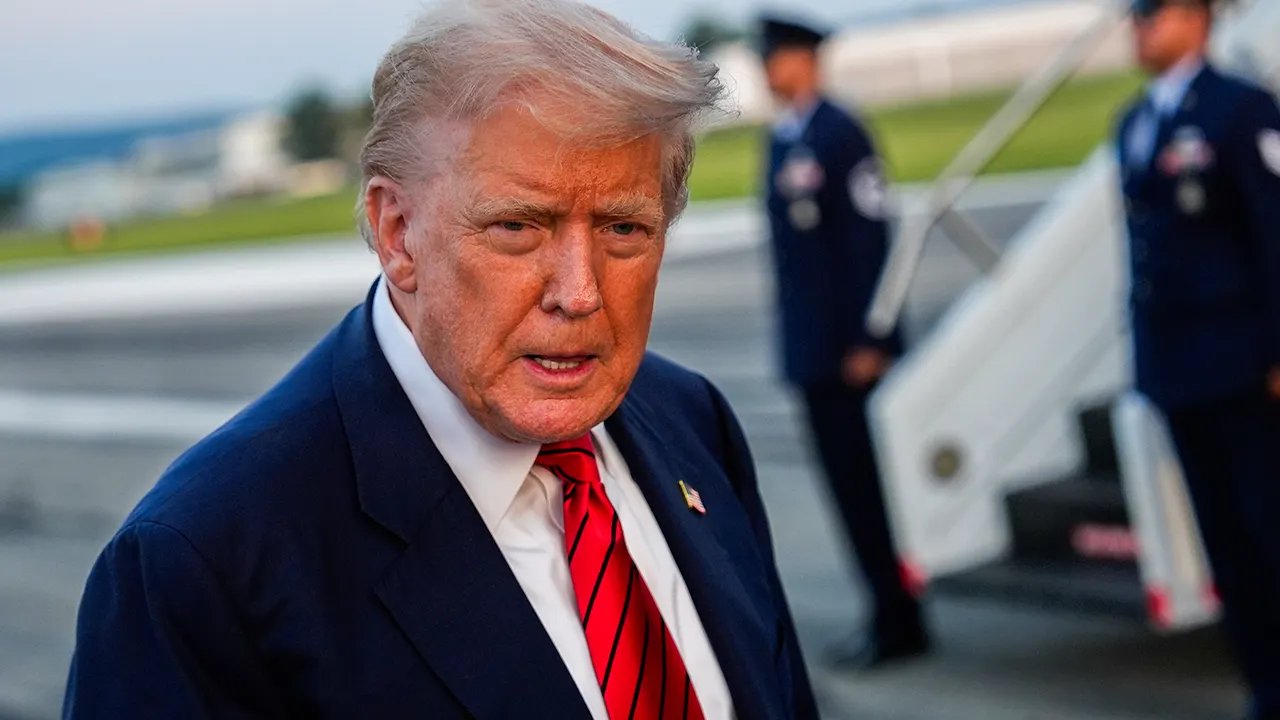
NEWYou can now listen to Fox News articles!
President Donald Trump told reporters on Sunday that nuclear submarines he ordered to counter Russia are now «in the region» ahead of U.S. special envoy Steve Witkoff’s visit.
Before boarding Air Force One in Allentown, Pa., to return to Washington, D.C., Trump was asked if the nuclear submarines had already been deployed to «face Russia.» Trump said on TRUTH Social on Friday that he ordered two nuclear submarines «to be positioned in the appropriate regions» in response to what he considered «highly provocative statements» from former Russian president Dmitry Medvedev about potential war with the U.S.
«I’ve already put out a statement and the answer is they are in the region, yeah, where they have to be,» Trump told reporters at Lehigh Valley International Airport on Sunday.
Trump said that Witkoff is expected to travel to Russia on «Wednesday or Thursday.» Russian state media reported Monday that Witkoff would arrive on Wednesday. The visit comes ahead of the Friday deadline Trump set for Russian President Vladimir Putin to reach a ceasefire agreement with Ukraine or face additional sanctions and tariffs. Trump also has warned about potential secondary tariffs for the purchasers of Russian energy.
TRUMP BRUSHES BACK RUSSIA’S MEDVEDEV AFTER ‘WAR’ WARNING: ‘WATCH HIS WORDS’
President Donald Trump speaks with reporters before boarding Air Force One at Lehigh Valley International Airport, Sunday, Aug. 3, 2025, in Allentown, Pa. (AP Photo/Julia Demaree Nikhinson)
«Well, there’ll be sanctions, but they seem to be pretty good at avoiding sanctions. You know, they’re wily characters, and they’re pretty good at avoiding sanctions,» Trump told reporters in front of Marine One. «So we’ll see what happens.»
Asked about Witkoff’s message to Moscow and if there’s anything the Russians can do to avoid sanctions, Trump said Sunday, «Yeah, get a deal where people stop getting killed.»
«A tremendous number of Russian soldiers have been killed. And likewise Ukraine, a lower number, but still thousands and thousands of people. And now we’re adding towns where they’re being hit by missiles. So it’s a lot of people being killed in that ridiculous war,» Trump said. «We stopped a lot of countries from war, India and Pakistan, we stopped a lot of countries. And we’re going to get that one stopped too. Somehow. We’re going to get that one stopped. That’s a really horrible war.»
«This should be the easiest to stop, and it’s not,» Trump added.
Before ordering the deployment of nuclear submarines last week, Trump had warned Medvedev, the deputy chairman of Russia’s Security Council, to «watch his words.» Medvedev had complained that Trump had shortened the Russia-Ukraine ceasefire deadline from 50 days to just 10 to 12 days, saying that the «ultimatum» was threat toward war «not between Russia and Ukraine, but with his own country.»
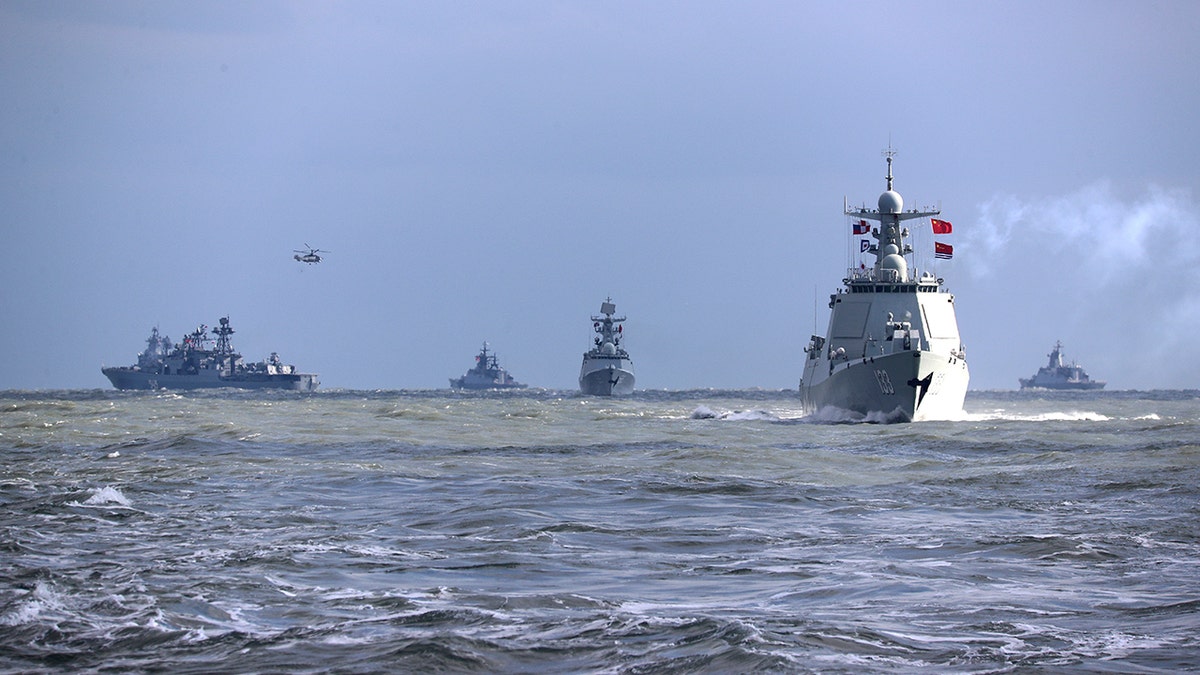
In this photo released by Xinhua News Agency, Chinese and Russian warships take part in a joint naval drills in the East China Sea, Dec. 27, 2022. (Xu Wei/Xinhua via AP, File)
Despite Trump cautioning that Medvedev was entering «dangerous territory,» the Russian official doubled down and referenced Russia’s «Dead Hand» – the Cold War-era automated nuclear retaliation system developed by the Soviet Union.
The U.S. and Russia hold the largest nuclear arsenals in the world.
Top Kremlin spokesman Dmitry Peskov reportedly downplayed the U.S. deployment of nuclear submarines Monday. He told reporters that «American submarines are already on combat duty – that’s a constant process» and the Russians «don’t believe this is a case of any sort of escalation,» according to the Russian-language news website Meduza.
Asked about Medvedev’s remarks, Peskov said members of the leadership in any country have different views but stressed Putin definitively decides Russian foreign policy.
«We approach any statements related to nuclear issues with great caution,» Peskov added at the press conference, according to The Moscow Times. «Russia is firmly committed to nuclear non-proliferation, and we believe that all parties should exercise the utmost restraint when it comes to nuclear rhetoric.»
TRUMP ANNOUNCES 25% TARIFF ON INDIA, SLAMMING ‘OBNOXIOUS’ TRADE BARRIERS, RUSSIA MILITARY AND ENERGY BUYS
Meanwhile, Beijing and Moscow have deepened their ties in recent years, with China providing an economic lifeline to Russia in the face of Western sanctions over the 2022 invasion of Ukraine.
Russia and China have started mock combat drills and other war games in the Sea of Japan, The Telegraph reported. Citing a statement from the Chinese Defense Ministry, the newspaper said the three-day exercise involves four Chinese vessels, including the guided-missile destroyers Shaoxing and Urumqi, and entails «submarine rescue, joint anti-submarine, air defense and anti-missile operations, and maritime combat,» as well as naval patrols in «relevant waters of the Pacific.»
At a press conference announcing details of the annual drills last week, Chinese Defense Ministry spokesperson Zhang Xiaogang said the Joint Sea 2025 exercise would be held in the air and seas near the Russian port city of Vladivostok, positioned across the sea from Japan’s west coast. Last year, the drill was held off southern China in the South China Sea.
«This is an arrangement within the annual cooperation plan between the Chinese and Russian militaries. It is not targeted at any third party, nor is it related to the current international and regional situation,» Zhang said.
China and Russia also signed a «no-limits» economic partnership shortly after the war in Ukraine began.
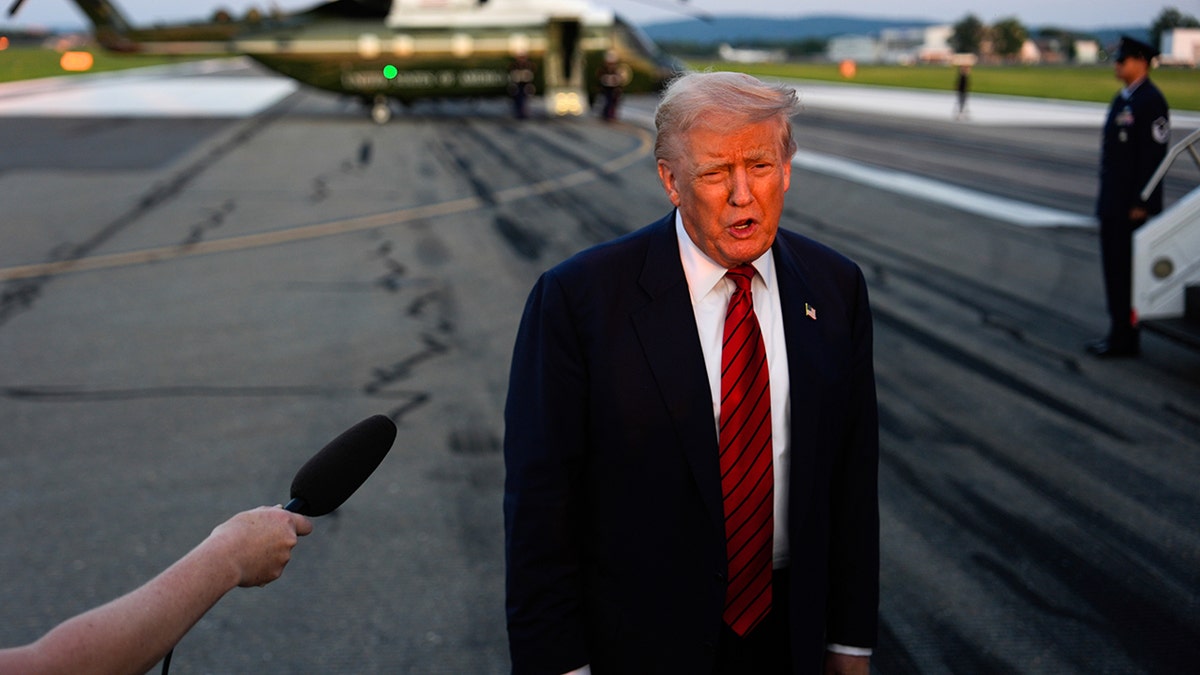
President Donald Trump speaks with reporters before boarding Air Force One at Lehigh Valley International Airport, Sunday, Aug. 3, 2025, in Allentown, Pa. (AP Photo/Julia Demaree Nikhinson)
Zhang criticized ongoing drills that the U.S. Air Force is conducting with Japan and other partners in the western Pacific. Resolute Force Pacific is the largest contingency-response exercise ever conducted by the Air Force in the region, according to the U.S. military. The U.S. Air Force has said their exercise will train its forces to maintain readiness and execute missions under stress to demonstrate their ability to defend the United States and partner nations in the Pacific.
«The U.S. has been blindly flexing muscles in the Asia-Pacific region and attempting to use military drills as a pretext to gang up, intimidate and pressure other countries, and undermine peace and stability in the region,» Zhang told reporters.
CLICK HERE TO GET THE FOX NEWS APP
Japan’s Defense Ministry said in an annual report earlier this month that China’s growing military cooperation with Russia poses serious security concerns.
The Associated Press contributed to this report.
ukraine,china,russia,donald trump,foreign policy
INTERNACIONAL
Gran prudencia nuclear»: Rusia advierte a Trump que «no hay vencedores en una guerra atómica
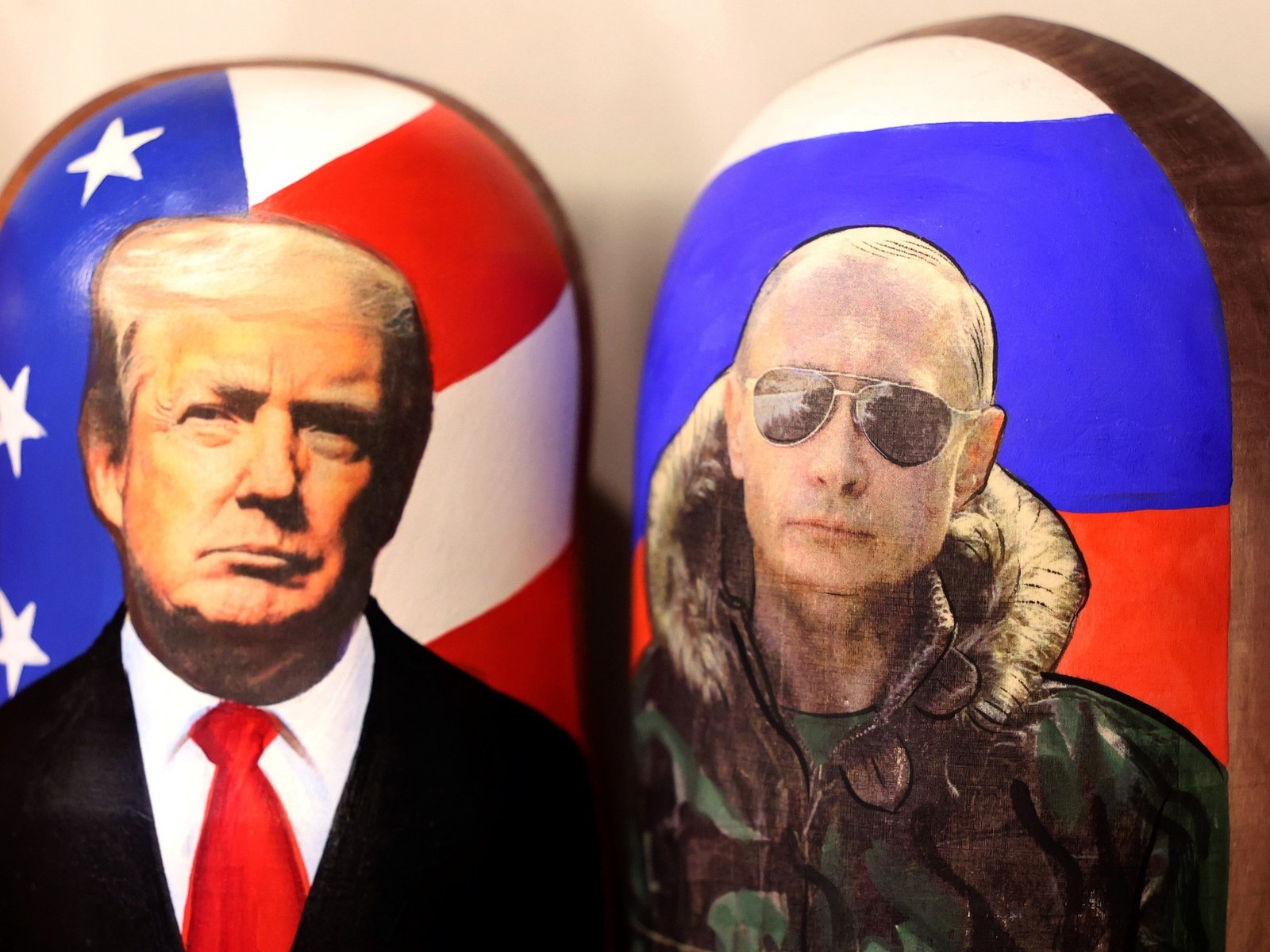
El Kremlin advirtió este lunes a Estados Unidos que «en una guerra nuclear no puede haber vencedores» después de que el presidente de EE.UU., Donald Trump, anunciara el despliegue de dos submarinos nucleares en respuesta a una supuesta amenaza rusa.
«En una guerra nuclear no puede haber vencedores. Este es, seguramente, el principal postulado por el que nos guiamos«, dijo Dmitri Peskov, portavoz presidencial, en su rueda de prensa telefónica diaria, en la que llamó a la cautela al hacer declaraciones sobre los arsenales nucleares.
Ésta es la primera reacción rusa al anuncio el pasado viernes del líder estadounidense, que no precisó la zona de emplazamiento de los submarinos.
Peskov subrayó que Moscú no considera que ahora tenga lugar entre ambas potencias «alguna clase de escalada» nuclear, por lo que «no nos gustaría vernos involucrados en tal polémica».
«Está claro que se trata de sustancia muy compleja y sensible que, por supuesto, es percibida por muchos de manera impulsiva», dijo.
En cambio, añadió, Rusia, cuya postura al respecto es responsable, opina que «todos deben ser muy cuidadosos en relación con la retórica nuclear».
«Los submarinos nucleares estadounidenses siempre están en alerta, es algo constante», comentó.
Trump ordenó el pasado viernes desplegar dos submarinos nucleares ante lo que considera las «provocadoras declaraciones» en las redes sociales del expresidente ruso Dmitri Medvédev, quien advirtió de una posible guerra entre ambos países.
«He ordenado el despliegue de dos submarinos nucleares en las regiones correspondientes, por si acaso estas declaraciones insensatas e incendiarias fueran más allá», declaró en la plataforma Truth Social.
El mandatario republicano agregó en su mensaje: «las palabras son muy importantes y, a menudo, pueden tener consecuencias imprevistas; espero que este no sea uno de esos casos».
Medvédev criticó la pasada semana el ultimátum que Estados Unidos le impuso a Rusia para que detenga la guerra de Ucrania y advirtió que éste podría derivar en un conflicto entre ambos países.
«Trump está jugando al juego de los ultimátum con Rusia: 50 o 10 días… Él debería recordar dos cosas. Primero: Rusia no es ni Israel ni incluso Irán. Y segundo: cada nuevo ultimátum es un paso hacia la guerra. No entre Rusia y Ucrania, pero con su propio país», escribió el lunes en su cuenta de X.
Trump’s playing the ultimatum game with Russia: 50 days or 10… He should remember 2 things:
1. Russia isn’t Israel or even Iran.
2. Each new ultimatum is a threat and a step towards war. Not between Russia and Ukraine, but with his own country. Don’t go down the Sleepy Joe road!— Dmitry Medvedev (@MedvedevRussiaE) July 28, 2025
El actual subjefe del Consejo de Seguridad de Rusia añadió poco después en Telegram: «Que recuerde sus películas favoritas sobre ‘Muertos vivientes’ y también qué peligroso puede ser la ‘mano muerta’».
El sistema ruso «Perímetro», también conocido como «Mano muerta», se activaría en caso de que el Kremlin pierda el control sobre su arsenal nuclear debido a un ataque masivo enemigo.
Después de expresar en varias ocasiones su decepción con el presidente ruso, Vladímir Putin, Trump redujo a 10 días el plazo para que éste detenga la guerra, so pena de sanciones y aranceles secundarios a los que importen petróleo ruso.
En medio de las tensiones entre Moscú y Washington por la falta de un acuerdo para una tregua en Ucrania, Trump confirmó el domingo que su enviado especial Steve Witkoff visitará Rusia la próxima semana, antes de la inminente fecha límite del ultimátum de 10 días so pena de sanciones.
En declaraciones a periodistas, Trump dijo que Witkoff visitaría Rusia «creo que la próxima semana, el miércoles o el jueves».
Putin ya se ha reunido con Witkoff en varias ocasiones en Moscú, antes de que los esfuerzos de Trump por reparar las relaciones con el Kremlin se detuvieran por completo.
Cuando los periodistas le preguntaron cuál sería el mensaje de Witkoff a Moscú y si había algo que Rusia pudiera hacer para evitar las sanciones, Trump respondió: «Sí, llegar a un acuerdo para que dejen de morir personas».
Trump ya había amenazado anteriormente con que las nuevas medidas podrían suponer «aranceles secundarios» dirigidos a los socios comerciales que le quedan a Rusia, como China e India. Esto ahogaría aún más a Rusia, pero supondría un riesgo de perturbación internacional significativa.
Pese a la presión de Washington, la ofensiva de Rusia contra su vecino prooccidental sigue su curso.
Donald Trump,Rusia,Estados Unidos

 POLITICA3 días ago
POLITICA3 días agoCristina Kirchner cruzó a Milei por la corrida cambiaria: “Lo único que se te ocurre es echarles la culpa a los ‘kukas’”

 POLITICA3 días ago
POLITICA3 días agoMilei interrumpió la nota con Fantino para firmar un decreto: avaló contrarreloj una suba a estatales y residentes del Garrahan

 POLITICA3 días ago
POLITICA3 días agoMurió el general Carlos Laidlaw, un militar dedicado a la estrategia y la geopolítica













